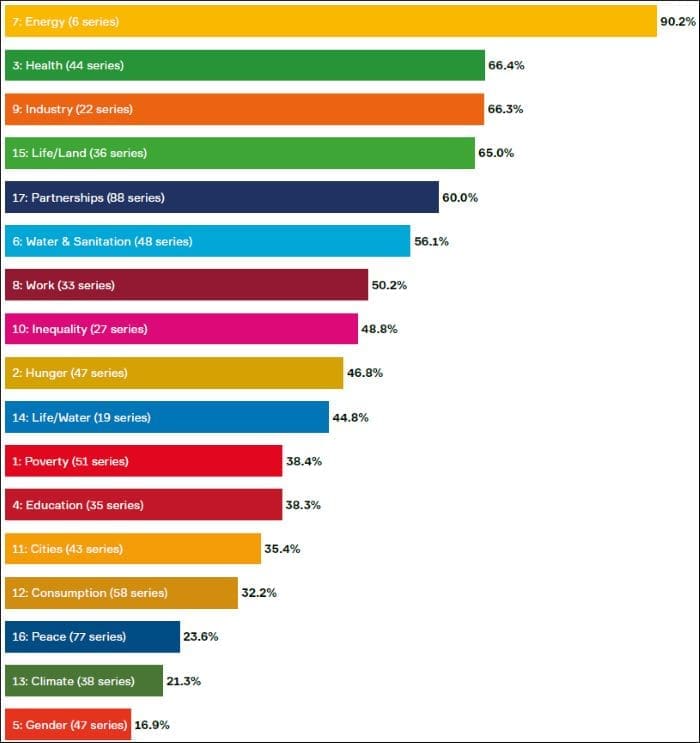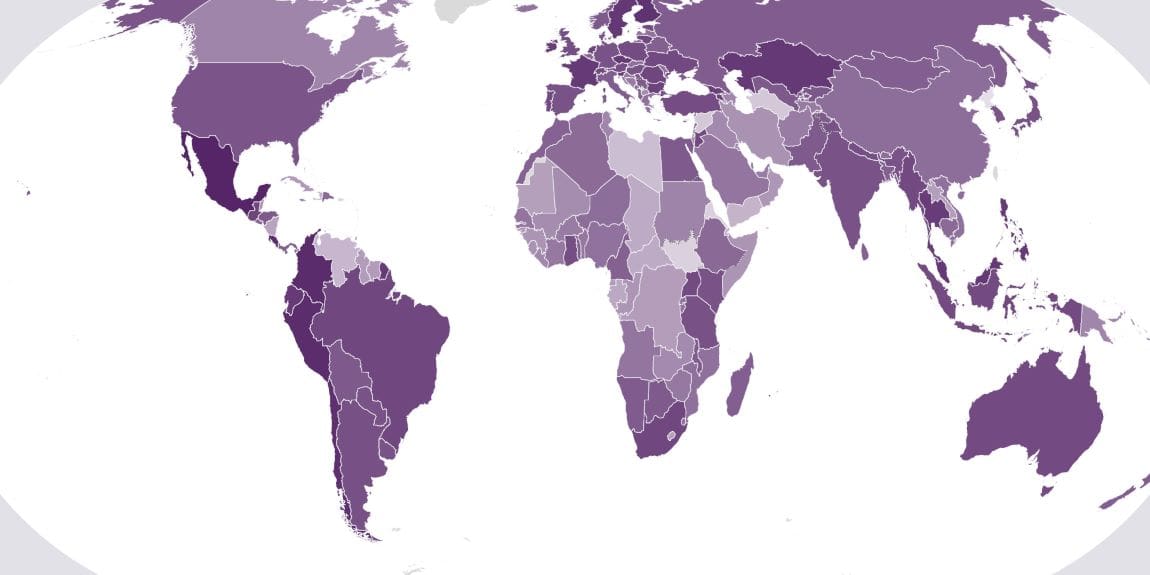Governments and international organizations rely heavily on data to make informed decisions about a wide range of issues, from energy policy to public health. However, a recent collaboration between the United Nations and ETH Zurich has revealed that significant data gaps persist across the world. These gaps are hindering progress towards achieving the Sustainable Development Goals (SDGs) outlined in the UN’s 2030 Agenda for Sustainable Development.
The SDG Monitor: a tool to identify data gaps
The SDG Monitor, developed by ETH Zurich in collaboration with the United Nations, highlights where data gaps exist globally and which countries consistently provide accurate data. According to the findings, 18 of the 30 countries with the best data availability are developing nations, an unexpected insight that reflects differences in national priorities. While developed countries may have more resources, some developing nations are more closely aligned with the SDGs, contributing to their higher data reporting rates.
This tool is vital for tracking progress on the SDGs, which include goals like eliminating poverty, achieving gender equality, and combating climate change. Yet, without reliable data, it’s challenging to measure how far individual countries have come in reaching these targets. As Christoph Gössmann, a doctoral student from ETH Zurich involved in the project, stated: “Without data we are flying blind. Unfortunately, this is currently too often the case.”
Discrepancies in data across different SDGs
The SDG Monitor doesn’t measure progress on the goals themselves but instead assesses the availability of data. The tool reveals that while areas like energy, health, and industry are well-documented, there is a concerning lack of data on peace, climate action, and gender equality. The gaps in these critical areas highlight the uneven nature of data collection and reporting, driven in part by the varying priorities of different nations.
An accompanying report offers additional insights into why data availability is so inconsistent. The cost of data collection, the complexity of the methodologies involved, and the resources required all play significant roles. Some types of data, such as satellite imagery, can be collected relatively cheaply, while others, such as detailed population surveys, require substantial financial and logistical investments.
Moreover, the role of international organizations tasked with gathering data also influences availability. The Custodian Agencies, responsible for managing specific data sets, often face challenges related to resource constraints, outdated methodologies, and competing national interests, all of which affect the quality and completeness of the data they collect.

Developing Nations and the SDGs
The fact that many developing countries are among those with the best data availability was initially surprising. However, closer analysis shows that these nations often prioritize aligning with the SDGs more closely than wealthier countries. This is because their national development agendas are more directly tied to the goals of the 2030 Agenda. For these countries, achieving the SDGs is crucial for their development and global standing. Switzerland also ranks among the top 30 countries, reflecting a strong commitment to the SDGs despite being a developed nation.
The report also stresses that governments need to integrate SDG data into their broader decision-making processes to truly benefit from the insights these statistics provide. When SDG data becomes a part of national policymaking, countries are more likely to invest in improving data collection and reporting systems.
Addressing Global Challenges Through Collaboration
The SDG Monitor is part of a broader partnership between ETH Zurich and the United Nations. This collaboration, formalized in 2023 with a memorandum of understanding (MoU), aims to advance technology-based social innovations to tackle global challenges. The tool supports decision-makers in international organizations, governments, and civil society by providing the data necessary for accountability, transparency, and informed decision-making.
ETH and the UN will convene at the Summit of the Future in New York, on the weekend of 20 and 21 September 2024, to review the progress of this partnership. The summit will also feature the ETH meets New York 2024 event, providing a platform to discuss how science and technology can be further leveraged to meet the global challenges outlined in the 2030 Agenda.
As the world approaches the 2030 deadline for achieving the SDGs, the importance of accurate and comprehensive data cannot be overstated. While some progress has been made, the global community needs to prioritize closing data gaps, particularly in areas like climate action and gender equality. The international community must also provide financial and technical support to countries struggling to gather the necessary data.
As Gössmann noted, the challenge is not just about collecting more data but about ensuring that data collection is driven by strong political will. “It then pays off for countries to invest in the collection of SDG data. And for countries unable to make the investment on their own, the international community needs to contribute financially and help build local capacities,” he said.
In this context, the SDG Monitor will continue to play a critical role in helping to ensure that the world stays on track to achieve the ambitious goals of the 2030 Agenda.
Publication Reference:
Goessmann C, Idele P, Jauer K, Loinig M, Melamed C, Zak T, ‘Pulse of Progress: The State of Global SDG Data in 2023‘, United Nations (15 September 2023). DOI: 10.3929/ethz-b-000630718
Article Source:
Press Release/Material by ETH Zurich
Featured image: Map displaying all UN Member States according to their data availability for at least two years since 2015 Credit: Pulse of Progress: The State of Global SDG Data in 2023 | ETH | UN




